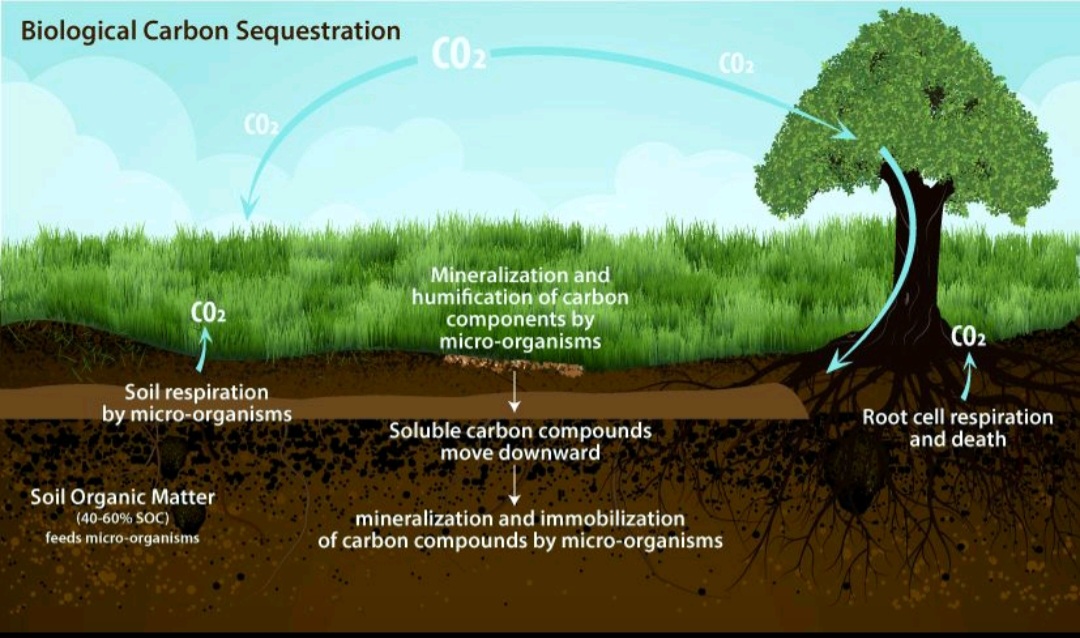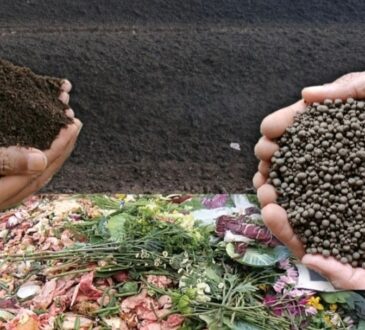♻️ Soil Carbon Sequestration & Organic Fertilizers:
Climate change has become an imminent global challenge, prompting a search for innovative solutions. Among these solutions, the role of organic fertilizers in mitigating climate change through soil carbon storage stands out as a promising avenue. Organic fertilizers, derived from natural sources like compost, manure, and plant residues, play a pivotal role in enhancing soil health while concurrently sequestering carbon, thereby contributing to the global effort to combat climate change.
▪️ Soil Carbon Sequestration Mechanism & Organic Fertilizers:
Organic fertilizers when applied to agricultural lands, they introduce organic matter to the soil, fostering a conducive environment for diverse microbial communities. These microorganisms break down organic residues, leading to the accumulation of stable organic carbon compounds in the soil.

Soil carbon sequestration refers to the process by which atmospheric carbon dioxide (CO2) is captured and stored in the soil through the decomposition of organic matter. Organic fertilizers act as a catalyst in this process. As plants grow and absorb CO2 through photosynthesis, they deposit carbon-rich organic compounds into the soil through their roots and leaf litter. Organic fertilizers supplement this natural cycle by providing additional organic matter to the soil, enhancing carbon storage.
♻️ Advantages:
▪️ Improved Soil Fertility: Organic fertilizers enrich the soil with nutrients, promoting healthier and more productive crops.
▪️ Enhanced Soil Structure: They aid in retaining moisture, preventing soil erosion, and promoting aeration, thus improving overall soil quality.
▪️ Reduced Greenhouse Gas Emissions: By sequestering carbon in the soil, organic fertilizers contribute to reducing CO2 levels in the atmosphere, mitigating climate change.
▪️ Resilience to Climate Variability: Carbon-rich soils are better equipped to withstand extreme weather events, making agriculture more resilient.

▪️ Challenges and Considerations
Factors such as varying decomposition rates, accessibility to organic inputs, and scalability of practices pose obstacles to widespread adoption. Additionally, education and awareness initiatives are crucial to encourage farmers to transition from conventional practices to organic fertilizer-based agriculture.
The significance of organic fertilizers in mitigating climate change through soil carbon sequestration cannot be overstated. Their integration into agricultural practices presents a multifaceted solution—boosting soil health, ensuring food security, and actively contributing to climate change mitigation efforts. Governments, agricultural institutions, and communities must collaborate to incentivize and promote the adoption of organic fertilizers, paving the way towards a sustainable and resilient agricultural future.
©Rahul Padwal
Pune, India
#soilhealth #carboncredits #carbonsequestration
image by google


